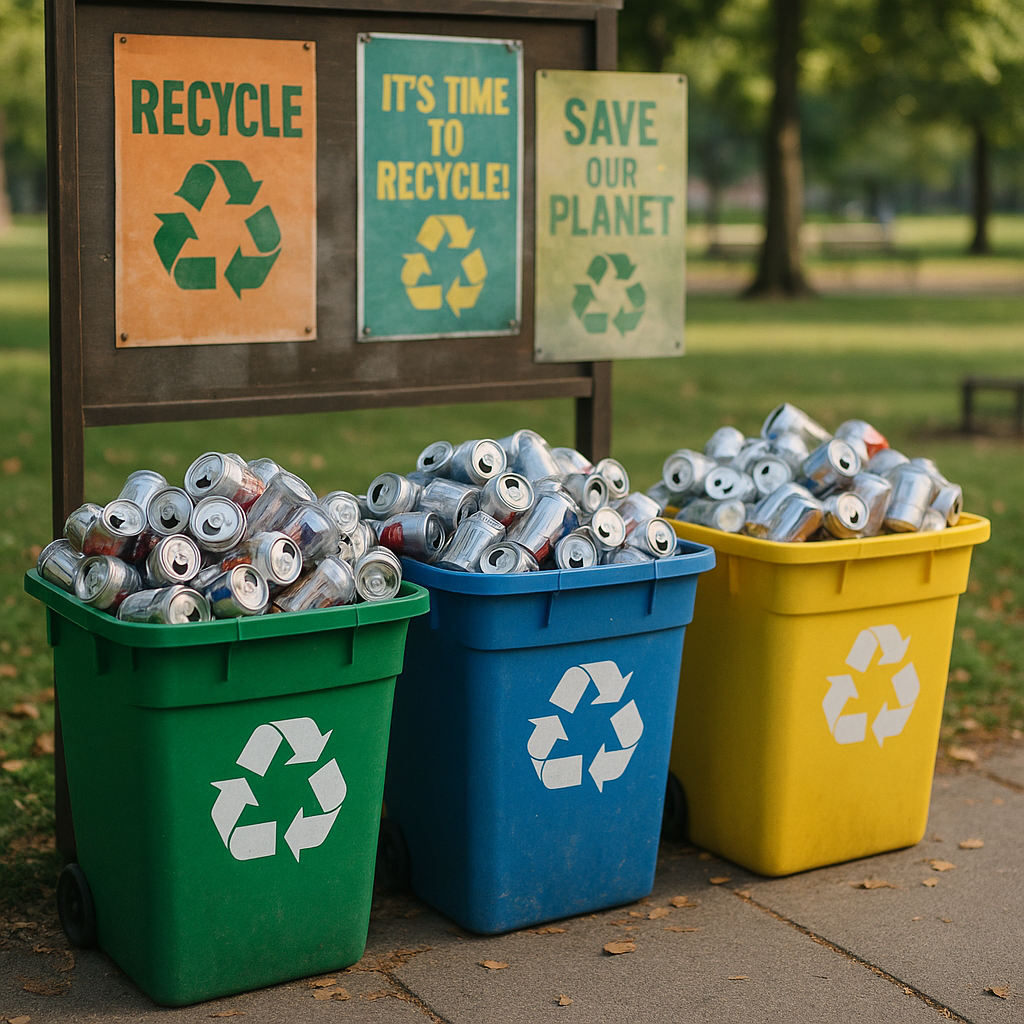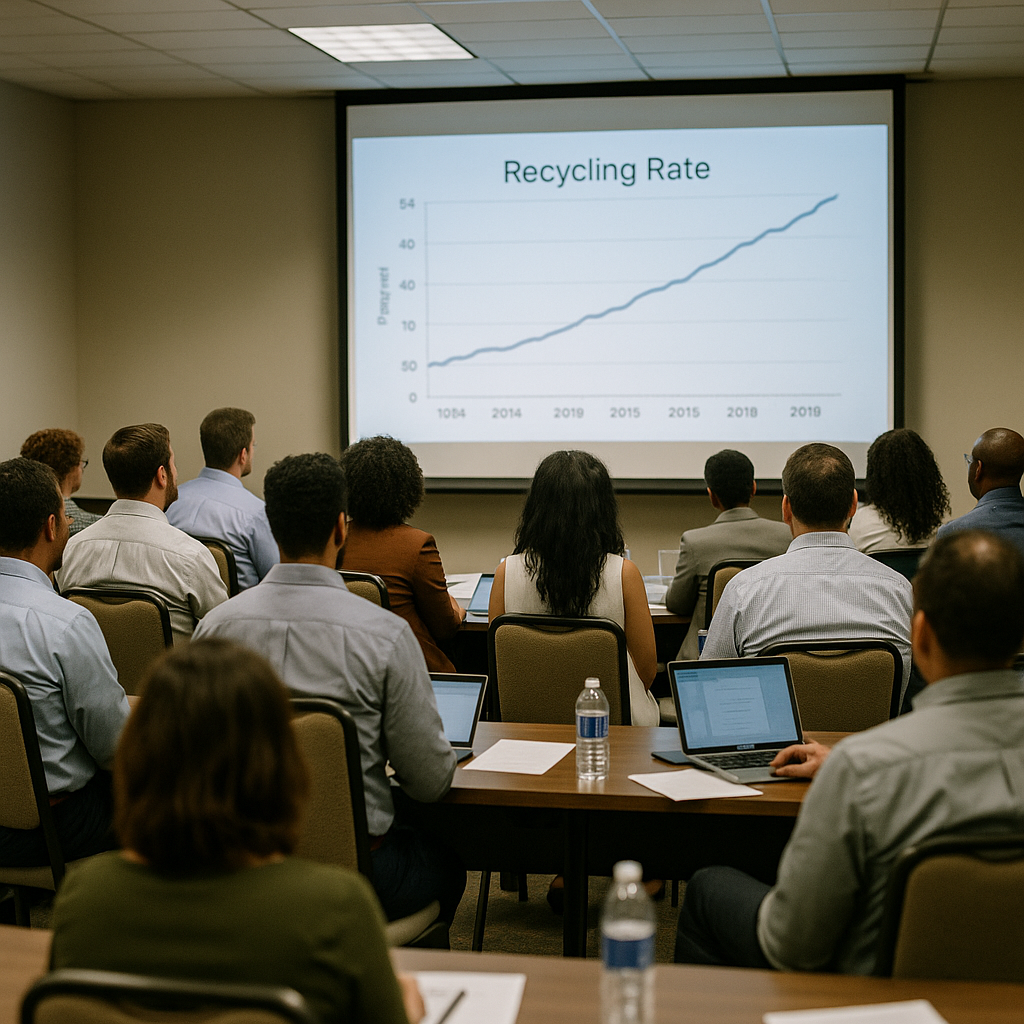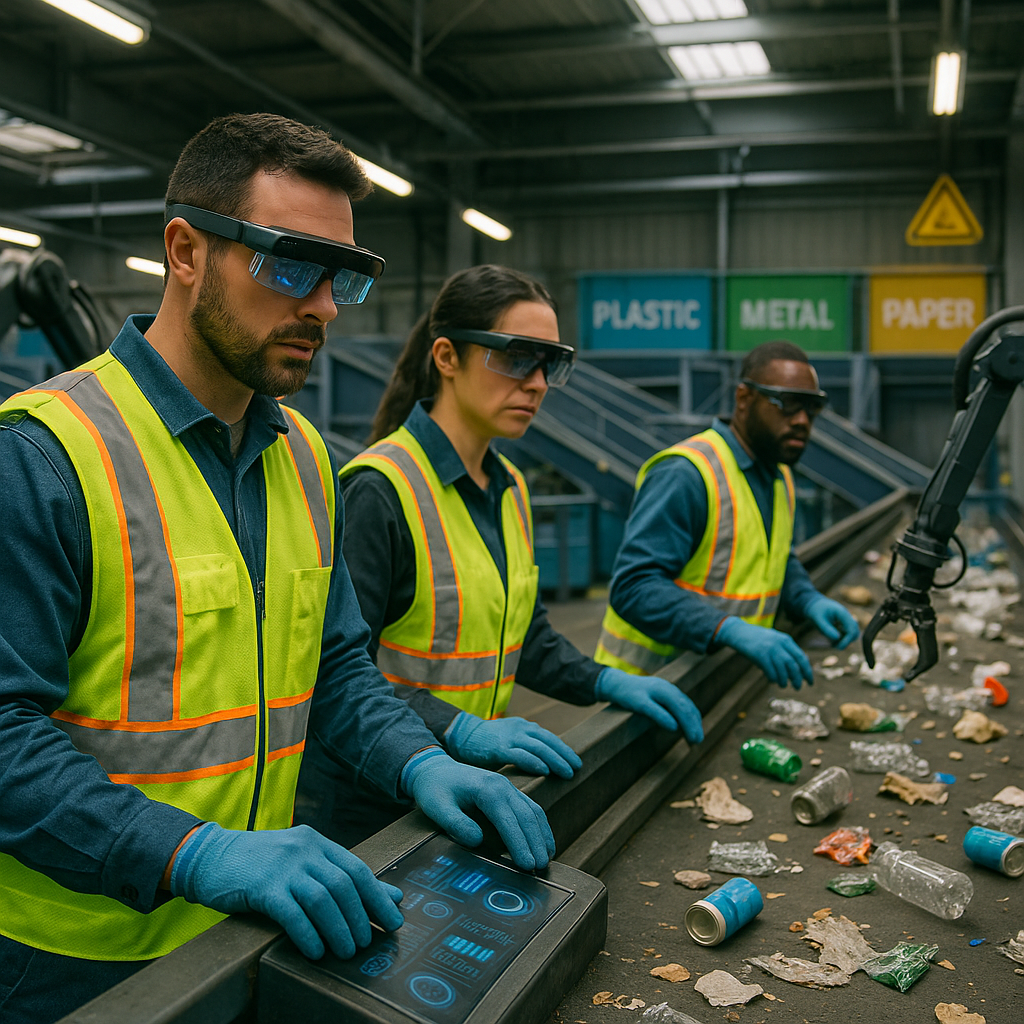5901 Botham Jean Blvd, Dallas, TX 75215
What Are Aluminum Recycling Awareness Campaigns?
May 28, 2025Did you know recycling a single aluminum can saves enough energy to power a television for three hours? Aluminum recycling awareness campaigns are strategic initiatives designed to educate the public on the critical importance of recycling aluminum products. These campaigns aim to inspire action and create lasting behavioral change among consumers and businesses alike.
Organizations like Emirates Environmental Group (EEG) with their Can Collection Campaign and Alupro’s #FoilFriday initiative are leading examples of effective aluminum recycling awareness programs. These campaigns use various communication strategies to highlight aluminum’s infinite recyclability without quality loss. They show how small individual actions contribute to significant environmental benefits.
The impact of these campaigns extends beyond environmental conservation. Global demand for recycled aluminum continues to surge, with utilization projected to exceed 28 million tonnes in 2023. This growth is driven by industries such as packaging, automotive manufacturing, construction, and electronics, all seeking sustainable material solutions. Through targeted awareness campaigns, the recycling ecosystem becomes stronger and more efficient.
What are Some Notable Aluminum Recycling Campaigns?

Aluminum recycling campaigns are key to raising awareness and boosting recycling rates globally. Various organizations have launched innovative initiatives to promote aluminum recycling through education, community engagement, and creative approaches. Let’s explore some impactful campaigns that have significantly contributed to sustainable waste management.
Can Collection Campaign by EEG
The Emirates Environmental Group (EEG) started the Can Collection Campaign in 1997 as an early environmental community action project supporting sustainability goals. By the end of 2022, EEG collected 378,083 kg of used aluminum cans.
The campaign has a substantial environmental impact, reducing CO2 emissions by 5,675 metric tons, saving 86,046 million BTU of energy, and preventing 9,178 cubic meters of landfill use. In February 2023, EEG gathered 7,357 kg of aluminum cans under the slogan “Say: Yes to Can Recycling, No to Carbon Emissions.”
Secrets of Aluminium by Alupro
The Aluminium Packaging Recycling Organisation (Alupro) created an instructional film called ‘Secrets of Aluminium’ to educate consumers about the recycling process and highlight the UK’s aluminum supply chain.
Narrated by sports commentator Nick Heath, the film provides an engaging look into aluminum recycling. Tom Giddings, Alupro’s executive director, noted that while industry professionals understand the process, consumers often remain unaware of what happens to their waste after collection, leading to misinformation and skepticism about recycling effectiveness.
The Infinity Room by Every Can Counts
Every Can Counts (ECC) created an innovative display called the ‘Infinity Room’ at W5 Belfast Science & Discovery Centre to celebrate Recycle Week’s 20th anniversary. This immersive installation received multiple awards for its creative approach to recycling education.
The display featured 1,500 recycled aluminum cans and 25 square meters of mirrors, creating a visually striking experience that demonstrated aluminum’s infinite recyclability. Visitors could share photos of the Infinity Room on social media using the hashtag #EveryCanCounts, extending the campaign’s reach beyond the physical installation.
#FoilFriday Campaign by Alupro
Alupro launched the #FoilFriday campaign to boost aluminum foil recycling rates in the UK. This initiative targets households through digital media to improve recycling rates and reduce contamination. The six-month campaign runs from July to December.
Collaborating with local governments, the campaign uses social media to encourage residents to recycle more at home. The Alupro website offers free downloadable social media assets promoting recycling best practices. The campaign includes website content, an information sheet about aluminum foil, and local press releases. All promotional materials are available in Welsh to ensure broader accessibility.
Belfast #CircleCity by Coca-Cola Foundation
The Coca-Cola Foundation, in partnership with Belfast City Council and environmental charity Hubbub, launched the Belfast #CircleCity initiative to make recycling aluminum cans and plastic bottles more accessible for residents and visitors. This three-month project focused on increasing recycling rates through convenient access to recycling bins.
The initiative builds on successful pilot programs in Dublin, Leeds, and London’s Lambeth district since 2018, which collected over 2.5 million aluminum cans, plastic, and glass bottles. The Lambeth project achieved a 70% reduction in contamination and a 140% increase in recycling. The Belfast initiative aimed for similar results through improved accessibility and public engagement.
How Do These Campaigns Impact Recycling Rates?

The measurable outcomes of recycling campaigns highlight their significant effectiveness in boosting recycling rates and creating substantial environmental benefits. The Can Collection Campaign by Emirates Environmental Group (EEG) exemplifies long-term success. Since its inception through the end of 2022, this initiative has collected 378,083 kg of used aluminum cans. This impressive volume has directly contributed to mitigating 5,675 metric tonnes of CO2e, saving 86,046 Million BTU of energy, and preserving 9,178 cubic meters of landfill space.
Regional initiatives like Belfast’s #CircleCity have achieved similar success at a community level. This program, launched in partnership with Coca-Cola, Belfast City Council, and environmental charity Hubbub, has collected and recycled over 2.5 million aluminum cans, plastic, and glass bottles. The campaign follows successful models implemented in other urban centers, showing how localized efforts can create substantial collective impact.
Contamination reduction is another key success metric for these campaigns. In London’s Lambeth district, targeted recycling initiatives reduced contamination rates by a remarkable 70%, meaning significantly fewer non-recyclable materials enter the recycling stream. Simultaneously, these efforts boosted overall recycling volume by 140%, demonstrating how education and accessibility work together to change behavior.
Some of the most impressive results come from comprehensive nationwide initiatives. Malta’s Beverage Container Refund Scheme (BCRS) recovered 70% of all containers sold within its first two years. This program alone has processed over 20 million aluminum cans and bottles, with approximately 600 metric tonnes of containers sent for recycling. These figures highlight how structured incentive programs can rapidly transform consumer behavior.
These statistics translate to real-world environmental benefits. Aluminum recycling is particularly impactful, as recycling one ton of aluminum saves up to 95% of the energy required for new production. This energy conservation ripples through the entire supply chain, reducing carbon emissions at multiple stages. When scaled to the level of these campaigns, the cumulative effect becomes significant in addressing climate change goals.
Conclusion: The Future of Aluminum Recycling Awareness

Aluminum recycling awareness campaigns are powerful catalysts for promoting sustainable practices in communities and industries. These initiatives are essential in educating the public about the significant benefits of aluminum recycling, such as 95% energy savings compared to primary production and substantial reductions in greenhouse gas emissions. From community programs to corporate efforts, innovative outreach strategies have effectively increased public engagement and boosted recycling rates worldwide.
The future of aluminum recycling is promising as global demand for recycled aluminum grows. Technological advancements in sorting and processing, along with expanding closed-loop systems, will enhance recycling efficiency. As more regions adopt circular economy principles, aluminum recycling will play a vital role in resource conservation, waste reduction, and environmental protection. These awareness campaigns are crucial in driving higher recycling rates and fostering sustainable aluminum consumption patterns.
Businesses looking to improve their recycling practices and contribute to a sustainable future can contact Okon Recycling at 214-717-4083. Our expert team can help implement effective aluminum recycling solutions that benefit both your organization and the environment.
